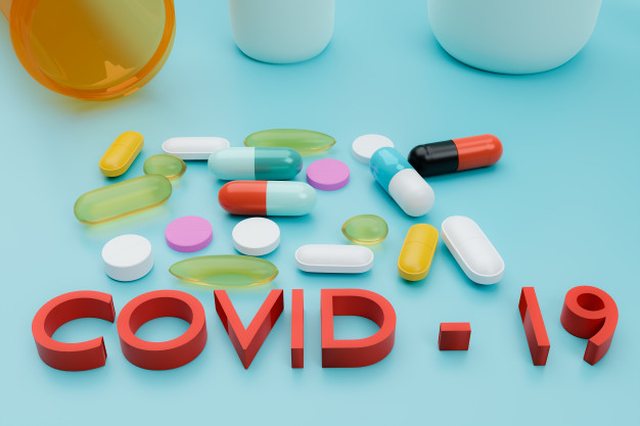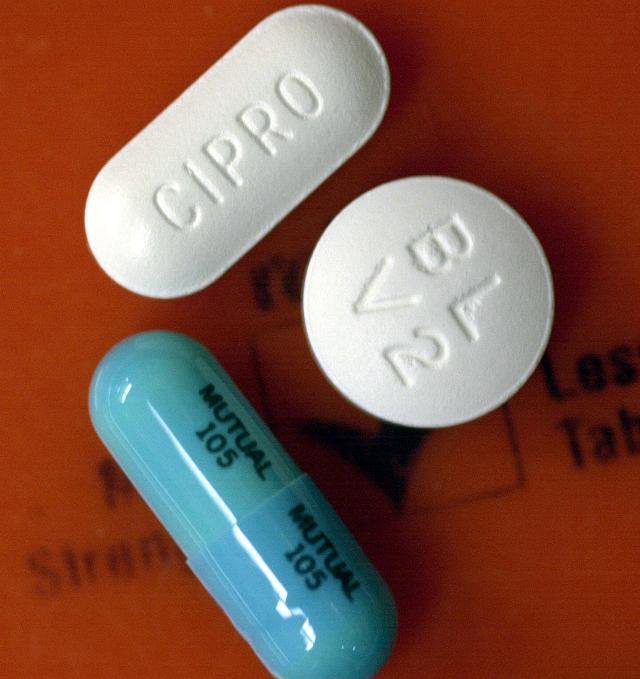
This article was published in "Forbes" a few years ago, but we are bringing it back to understand the impact of antibiotic overuse at a time when the coronavirus is threatening the whole world day by day.
You must have read an article online about the dangers of vaccination, and if you lived in other countries you would face this topic in political debates, news and even talk shows. Celebrities like Donald Trump, Bill Maher, Alicia Silverstone or Jenny McCarthy have spoken out against vaccination. Others, like Kristen Bell, Jennifer Garner, Amanda Peet and Jimmy Kimmel have supported her. Some think it is not even necessary to spend so much time discussing something that should not be discussed, but despite what anyone thinks about the issue, it is hard to deny that anti-vaccine campaigns have already aroused a lot of interest.
If you compare it, there seems to be much less discussion and passion for overuse of antibiotics, even though the data speaks to the serious problems it can cause. The most recent concern is that the use of antibiotics can cause weight gain, and is supported by a study led by Brian Schwartz, professor of Health and Environmental Sciences and a member of the World Center for Obesity Prevention (GOPC) at the School of Health Public Johns Hopkins in Bloomberg. The study, published in the International Journal of Obesity, used electronic health data from the Geisinger Health System of 163,820 children from January 2001 to February 2012 to analyze the relationship between antibiotic use and changes in weight and height. which are used to determine body mass index (BMI), the measure commonly used for obesity. As Dr. Schwartz, “BMI can change forever from the use of antibiotics in childhood. "According to our data, the more times we give antibiotics to children, the more times we influence them to gain weight faster." Obesity in children can lead to serious medical, psychological and social problems. The study is part of a larger ongoing project at the GOPC, which examines a population in 37 states to better understand the complex systems that cause childhood obesity. so many times we influence them to gain weight faster ”. Obesity in children can lead to serious medical, psychological and social problems. The study is part of a larger ongoing project at the GOPC, which examines a population in 37 states to better understand the complex systems that cause childhood obesity. so many times we influence them to gain weight faster ”. Obesity in children can lead to serious medical, psychological and social problems. The study is part of a larger ongoing project at the GOPC, which examines a population in 37 states to better understand the complex systems that cause childhood obesity.
One possible mechanism is that antibiotics alter our gut microbiome. The microbiome is like a city with good bacteria, fungi, protozoa and viruses. Every day, the inhabitants of this city are quite busy, performing their tasks like digestion and metabolism of food, produce vitamins, regulate the immune system and give the stool the characteristic smell. Antibiotics can kill the bacteria needed. As in any city, if one kills the good inhabitants, the bad ones take possession. These new residents may not do the job of good bacteria and this causes disorder. So whenever you take antibiotics, think that it is affecting the city inside the intestines. Scientific research has revealed only a small part of the work done by these small inhabitants. So, antibiotics can have a very big impact on the body. Now add the microbiome weight and change, to the long list of potential risks of antibiotic overuse. This list includes the development and spread of antibiotic-resistant bacteria such as methicillin-resistant Staphylococcus aureus (MRSA) and cabarpenem-resistant Enterobacteriaceae (CRE). Bacterial clusters are like clusters of people, they can immediately adapt to threatening changes. Antibiotics can initially exterminate many bacteria that cause problems, but those that remain, more potent, regroup and multiply so that the young population is not equally affected by the same antibiotic. This list includes the development and spread of antibiotic-resistant bacteria such as methicillin-resistant Staphylococcus aureus (MRSA) and cabarpenem-resistant Enterobacteriaceae (CRE). Bacterial clusters are like clusters of people, they can immediately adapt to threatening changes. Antibiotics can initially exterminate many bacteria that cause problems, but those that remain, more potent, regroup and multiply so that the young population is not equally affected by the same antibiotic. This list includes the development and spread of antibiotic-resistant bacteria such as methicillin-resistant Staphylococcus aureus (MRSA) and cabarpenem-resistant Enterobacteriaceae (CRE). Bacterial clusters are like clusters of people, they can immediately adapt to threatening changes. Antibiotics can initially exterminate many bacteria that cause problems, but those that remain, more potent, regroup and multiply so that the young population is not equally affected by the same antibiotic.

Gjithashtu, disa antibiotikë mund të kenë efekte anësore serioze. Në disa raste ato kanë ndikuar jetët e njerëzve si për shembull një klasë antibiotikësh të quajtura fluoroquinolones mund të dëmtojnë mushkujt, kockat, sytë dhe veshkat.
Përveç këtyre problemeve, antibiotikët përdoren gjithandej dhe, në shumë raste, më shumë seç duhet. “Në Shtetet e Bashkuara kemi dhënë receta për antibiotikë me tepri për shumë vite. Kur nevojiten antibiotikë, ne zgjedhim ata që janë më të fortë dhe i japim për kohë më të gjatë sesa duhet. Tani po mësojmë që shumica e sëmundjeve të zakonshme bakteriale kërkojnë një spektër shumë më të ngushtë antibiotikësh dhe për një kohë shumë më të shkurtër si tri ditë për një pacient me pneumoni që kurohet në shtëpi dhe një ditë për infeksion të traktit urinar”, thotw dr. Susan Huang profesore në divizionin e Sëmundjeve Infektive në Shkollën e Mjekësisë Irvine të Universitetit të California-s.
Gjithashtu, shumë fermerë përdorin antibiotikë për kafshët dhe ushqimin e tyre.
Pra, çfarë duhet bërë për të shmangur mbidozën e antibiotikëve? Ja disa hapa:
Mos merr antibiotikë kur nuk është e nevojshme
Ndonjëherë mjekët dhe dentistët shtyhen edhe nga kërkesa e pacientit. Mos kërko antibiotikë kot dhe mos merr kurrë në farmaci vetë, sepse shumë probleme të aparatit të frymëmarrjes nuk shkaktohen nga bakteriet dhe zgjidhen pa antibiotikë.
Kur të japin antibiotikë, pyet nëse janë të nevojshme
Ndonjëherë mjekët mund të japin antibiotikë kur nuk është e nevojshme. Duhet të pranojmë që si në çdo profesion tjetër, edhe ata variojnë në njohuri dhe aftësi. Pyete nëse është e domosdoshme të marrësh antibiotikë. Nëse mjeku reagon keq ndaj pyetjes tënde të sjellshme, ndërroje me një tjetër. Ti ke të drejtë të dish çfarë fut në trup sidomos pas një ndërhyrjeje kirurgjikale apo procedure dentare.
Sigurohu që po mjekohesh me antibiotikun e duhur
Ashtu si armët dhe antibiotikët janë të llojeve dhe kalibrave të ndryshëm. Nuk mund të përdoren armë bërthamore për të ndaluar një grabitës dhe as të shkosh me doreza boksi në luftë. Nëse përdor armët apo antibiotikët e gabuar mund të bësh shumë dëme të padëshiruara. Pyete me kujdes mjekun për llojin e antibiotikut që po të jep dhe kundër cilit bakter po përdoret.

Mos harro që operacionet shoqërohen me antibiotikë
Pas ndërhyrjeve kirurgjikale mjekët u japin pacientëve antibiotikë për të shmangur ndonjë infeksion të mundshëm, ndonjëherë edhe mbi dozë. Por ka edhe operacione që bëhen për qejf, ato estetiket. Kështu që para se të bësh një ndërhyrje për të tërhequr lëkurën, apo rritur gjoksin, mendoje mos është më mirë të bësh vetëm disa trajtimet të jashtme.
Kur nis të marrësh antibiotikë, mbaroje dozën
Të minimizosh sasinë e antibiotikëve të marrë nuk do të thotë të lësh përgjysmë dozën që të ka dhënë mjeku. Të pish vetëm dy ditë antibiotikë kur receta thotë dhjetë, është si të japësh ca grushte të lehta në boks, apo arte marciale dhe të kthesh shpinën duke vazhduar të qëndrosh në ring. Dr. Huang pranoi që në të ardhmen kohëzgjatja e marrjes së antibiotikëve mund të ndryshohet, por tani dhe në të ardhmen, duhet të respektosh udhëzimet e recetës të mbështetur në prova shkencore.
Mos merr kurrë antibiotikë të skaduar apo të dhëna pa recetë
Antibiotikët ndryshojnë vetitë me kalimin e kohës dhe ekspozimin në ambient, kështu që data e skadencës është e rëndësishme. Gjithashtu ekzistojnë edhe shumë ilaçe false gjithandej. A do futeshe në një ndeshje me kokore të prishur?
Zbulo sa antibiotikë janë përdorur në ushqimin tënd
Nuk ka të dhëna të sakta për ndikimin e mishit të kafshëve të trajtuara me antibiotikë te njeriu, por ne jemi pjesë e të njëjtit ekosistem dhe çfarë ndikon një pjesë të ekosistemit, mund të na ndikojë edhe ne.
Ngri problemin e rrezikut të mbipërdorimit të antibiotikëve
Why does not all that commitment to vaccines happen even against the overuse of antibiotics, when it is known how dangerous this is? We are not saying that antibiotics should not be used. They are like any medicine, like social media and like chocolate. Necessary in the right amount, but harmful in overdose… even if you do not decide to take more than recommended, but respect the dose. They have saved people's lives over the years and moved society forward, but in large quantities they are very harmful. So why aren't celebrities, social networks, ordinary people equally engaged against antibiotic overuse?





